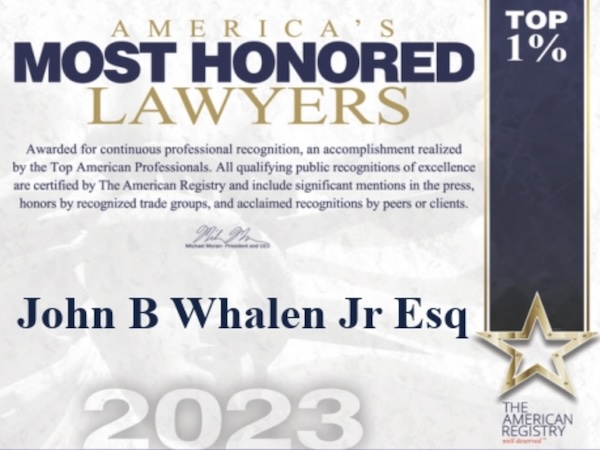Gladwyne Pa Powers of Attorney – Intro
Powers of Attorney are documents that convey legal authority (to the Pa Principal) to act in the name of another person (Pa Agent) for his or her health and welfare. A Pa Power of Attorney can grant broad authority or be very limited in scope. I help you prepare for contingencies based on the specific circumstances surrounding you and your loved one.
Gladwyne Pa Powers of Attorney – Document Purposes
A Pa Power of Attorney grants your Pa Agent (Fiduciary) the ability to control all of your affairs. It is a very powerful document; it permits your Pa Agent the broadest of powers to do anything that you could have done (i.e., give all of your money away).
Yet, inherent in the broad powers that your Pa Agent possesses is the possibility – the extremely real possibility – that your Agent under your Power of Attorney may actually do anything that you could have done (i.e., give all your money away).
Gladwyne Pa Powers of Attorney – Fiduciary Traits
Your Agent should be able and willing, first and foremost.
Your Agent should also be levelheaded and familiar.
Gladwyne Pa Powers of Attorney – Notice
Be aware that a Power of Attorney must comply with Pennsylvania’s Power of Attorney laws (April, 2000), and begin with a Notice page.
The Notice page must be in capital letters.
The Notice page explains and warns the rules surrounding the immense power of a Power of Attorney and the corresponding authority of the Agent.
Gladwyne Pa Powers of Attorney – Caution
If you executed a Power of Attorney prior to that date (April, 2000), and the Power of Attorney does not contain the Notice page, it is defective and will most likely cause more problems that it should be able to solve.
Gladwyne Pa Powers of Attorney – Warning
Pennsylvania Estate Law, Estate Planning, Estate Administration, Fiduciary Accounting, and Fiduciary Taxation are extremely complex areas of law.
“The difference between the almost right word and the right word is really a large matter – it’s the difference between the lightning bug and the lightning.” (Mark Twain).
Whether you are a Pa Agent (under a Pa Power of Attorney), a Pa Surrogate (under a Pa Living Will), a Pa Trustee (under a Pa Trust), and/or (most importantly) a Pa Executor (under a Pa Last Will), you will ultimately be responsible for any and all problems, mistakes, and unpaid taxes.
Please also be aware that, when it comes to tax returns that were not filed, there is no statute of limitations – meaning that you could receive notice that taxes were due, but not paid, and are still currently due.
Lastly, and most importantly, if you retained a professional (i.e., a lawyer, an accountant, etc.), call that professional and ask them what is the status of anything with which they assisted you. They should be able to give you accurate, precise, and immediate answers to any of your concerns.
If they do not, please be forewarned.
You may want to seek assistance elsewhere.
In keeping with Mark Twain’s quote, let’s try to separate the lightning bugs from the lightning.
Gladwyne Pa Powers of Attorney – HIPAA
HIPAA is vast.
Congress enacted The Health Insurance Portability and Accountability Act of 1996 (“HIPAA”) on August 21, 1996. The Health Insurance Portability and Accountability Act of 1996 (HIPAA) is enormous and complex.
Gladwyne Pa Powers of Attorney – Concerns
One of its critical concerns was protecting the privacy of the average American citizen. Prior to HIPAA’s enactment, medical records had become increasingly accessible as a result of technological advances that contributed widespread information sharing.
HIPAA targeted the potential for fraudulent or improper disclosure and transmission of medical records. In doing so HIPAA has created a challenge for lawyers in Pennsylvania who seek to protect the rights of clients who need to exercise Powers of Attorney for their loved ones within the HIPAA environment.
Gladwyne Pa Powers of Attorney – The Privacy Rules
One of HIPAA’s requirements was the establishment of the Privacy Rules.
Prior to the HIPAA Privacy Rules (which were enacted in their current form on August 14, 2002), there was a confusing mélange of federal and state laws to govern the transmission of, and access to, health information.
Under these pre-existing laws, an individual’s health information could be shared freely between doctors, hospitals, insurers, and third party payers, without either notice to, or authorization from, the individual.
Consequently, the HIPAA Privacy Rules set federal minimum standards for the disclosure of an individual’s private health information. The rules attempt to strike a balance between the necessary disclosures of health care information and the privacy interests of those who seek medical care.
Given that the health care marketplace is diverse, the rules are designed to be flexible and comprehensive to cover the variety of uses and disclosures that need to be addressed.
Gladwyne Pa Powers of Attorney – Powers of Attorney
A Pa Power of Attorney is a document that convey legal authority (to the Pa Principal) to act in the name of another person (Pa Agent) for his or her health and welfare.
Historically, health care providers have accepted Powers of Attorney readily, without questioning their validity.
In the post-HIPAA world, however, one can expect a higher level of scrutiny. In fact, the HIPAA Privacy Rules can potentially create a conflict with respect to the traditional language of Powers of Attorney. Thus, to be effective, Powers of Attorney should be drafted to comply with the requirements of the Privacy Rules.
The Privacy Rules protect all individually identifiable health information (defined as Protected Health Information or PHI) of an individual held or transmitted by covered entities (defined as health care providers who transmit any health information in electronic form).
Although the Privacy Rules allow certain uses and disclosures of such information without the consent of the Individual or that Individual’s Personal Representative (defined as a person who has the present authority to make health care decisions for that Individual), the HIPAA Privacy Rules, with few exceptions, proscribe the disclosure of PHI unless the Individual or the Personal Representative authorizes it in writing.
Gladwyne Pa Powers of Attorney – Granting of Authority
Pa Powers of Attorney are designed to allow an individual the ability to grant authority to another in order to allow the Pa Agent to act on behalf of the Principal.
They can be drafted to be effective now (current powers) or effective in the future occurrence of a specific event (springing powers).
Pennsylvania law (20 Pa.C.S. § 5602(h) and (i)) allows the Principal under the Power of Attorney to grant the Agent the power to authorize “my admission to a medical, nursing, residential or similar facility and to enter into agreements for my care and the power to authorize medical and surgical procedures.”
While Powers of Attorney can be drafted to provide for a wide variety of situations, this article is limited to the impact that the Privacy Rules have on General Durable Powers of Attorney that are presently effective.
If a Power of Attorney grants the Agent the present ability to make health care decisions on behalf of the Principal, the Agent qualifies as the Personal Representative under the HIPAA Privacy Rules.
However, if a Power of Attorney does not grant the Agent the present ability to make health care decisions on behalf of the Principal to the Agent, the Agent is not considered the Personal Representative under the HIPAA Privacy Rules, regardless of the scope of the health and medical authority otherwise granted to the Agent.
In order to be effective under HIPAA, the specific authority granted to the Personal Representative (Agent) under the state defined Power of Attorney rules thus must be consistent with the definition of Personal Representative under the federally defined HIPAA Privacy Rules.
Under the Privacy Rules, a Power of Attorney that is intended to allow the Personal Representative (Pa Agent) the power to access medical records, to authorize information disclosures, and to participate in medical decisions on behalf of the Principal, but not drafted to allow the Personal Representative (Agent) the presently effective power to make health care decisions on behalf of the Principal, may be technically deficient.
Consequently, the Pa Agent may lack the critical necessary powers to act on behalf of the Principal in time of need.
Although some health care professionals may rely upon a Power of Attorney that is not drafted to comply with the Privacy Rules, they do so at their own peril.
Gladwyne Pa Powers of Attorney – The Effective Clause
To address this issue of presently effective powers, I use the following clause in clients’ Durable General Powers of Attorney, as well as in Advance Directives for Health Care:
“to have and utilize the presently effective power and authority to act in accordance with and pursuant to the Health Insurance Portability and Accountability Act of 1996 (HIPAA), its attendant Privacy Rules, 45 CFR Part 164, and/or other federal and state legislation, by having the presently effective power and authority to make any and all health care decisions on my behalf; to give informed consent for any and all health care decisions on my behalf; to be deemed to be my Personal Representative; to act in any and all matters as my Personal Representative; to obtain any and all of my Protected Health Information; to consent to the disclosure and use of any and all of my Protected Health Information; and to have the presently effective power and authority to effectuate any and all of the above.”
Please remember that this article is limited to the impact that the HIPAA Privacy Rules have on General Durable Powers of Attorney that are presently effective.
In light of the fact that the determination of capacity is central to the effectiveness of a Pa Power of Attorney (as well as to many other legal documents), the HIPAA Privacy Rules should not create problems for health care purposes if the Pa Agent possesses the presently effective ability to make health care decisions on behalf of a Pa Principal. With a properly drafted Pa Power of Attorney, if the Principal becomes incapacitated, the authority of the Agent is not interrupted.
Conversely, the authority of the Pa Agent will be interrupted if the Pa Power of Attorney is not presently effective and a determination of capacity is required to be made. This situation exists, for example, when an Pa Agent is to act under a Springing Power of Attorney or when a Successor Trustee is to act under a Trust Agreement.
As these scenarios are outside the realm of this article, I would suggest referring to the article, HIPAA-POA: The Effect on Healthcare Power of Attorney by Stephen H. Frishberg, Esquire. This article is contained in the PBI Publication No. 2004-3355, 11th Annual Estate Law Institute.
Stay ahead of the HIPAA Privacy Rules
Estate planners must stay ahead of the basic definitions and tenets of the HIPAA Privacy Rules.
Knowledge of the precise meanings of Protected Health Information, Personal Representative, and other HIPAA terms, and how they impact our practice are fundamental to our role as counselors.
A Power of Attorney is a highly effective document when drafted correctly.
Only with the proper wording in light of HIPAA, the Privacy Rules, and the changing practice of today’s health care profession, will the Power of Attorney remain the powerful tool it is mean to be.
Gladwyne Pa Powers of Attorney – Misconceptions
A common misconception is that a Power of Attorney eliminates your ability to act for yourself. Quite to the contrary, and until you are deemed to be incapacitated, a Power of Attorney should properly be viewed as a “shared authority.” After you have executed a Power of Attorney, you still retain all of the powers and decision-making abilities that you possessed beforehand, including the power to revoke the Power of Attorney.
Another common misconception is that your Agent needs your permission to act. Quite to the contrary, a Power of Attorney is a very powerful document. It permits your Agent the broadest of powers to do anything that you could have done (i.e., give all of your money away), and, inherent in the broad powers that your Agent possesses is the possibility – the extremely real possibility – that your Agent under your Power of Attorney may actually do anything that you could have done (i.e., give all your money away).
Gladwyne Pa Powers of Attorney – Three Areas
- Financial management
- Representation for legal matters
- Authority to make medical decisions
Gladwyne Pa Powers of Attorney – Financial management
When your loved one is incapacitated, bills and taxes still come due. Your loved one may have financial assets, such as stocks, stock options, bonds, or royalties, which require oversight. Having the authority to manage your loved one’s finances if necessary provides greater financial security. Older adults who are forgetful or susceptible to phone scams can also benefit from a loved one overseeing their bank accounts.
To protect your loved ones, you need clear legal authority to make decisions if they are unable to do so. John B. Whalen, Jr. Esq. can help you draft and execute Pa Power of Attorney documents so you can be certain about your authority when a loved one needs you most.
Gladwyne Pa Powers of Attorney – Representation for legal matters
Small business owners and individuals involved in litigation are faced with numerous choices. These decisions, which must often be made on a daily basis, can have serious consequences. Even if your loved one is not ready to step away from day-to-day management of business and legal matters, executing power of attorney is a prudent contingency plan.
Gladwyne Pa Powers of Attorney – Authority to make medical decisions
When a medical crisis strikes, many families are unsure about the extent of lifesaving treatment the injured or ill person would have wanted. Every adult should have a medical directive explaining their wishes clearly and specifying someone to carry out their desires when they can’t communicate.
Gladwyne Pa Powers of Attorney – Reluctant Seniors
Sudden illness or injury can leave anyone totally incapacitated. Or, the infirmities of age can compromise an older adult’s ability to fully function independently. Under such circumstances, concerned loved ones may feel compelled to act, but may lack the legal authority to do so. This can delay essential care, threatening your loved one’s health and welfare when he or she is most vulnerable.
It can be difficult to talk to a senior loved one about the need for power of attorney documents. Many are loathe to admit they may need assistance, especially from their children, and are uncomfortable even considering a reversal of roles which puts them under their children’s authority. I am very familiar with this dynamic, and can advise you on effective ways to broach the subject with your elder loved ones.
A loved one’s illness, injury or infirmity can leave them vulnerable to financial losses and serious threats to their health. A carefully drafted power of attorney can give you and your loved one greater peace of mind.
Related Posts
John B. Whalen, Jr., JD., LL.M., is an AV Peer Review Rated Preeminent 5.0 and Avvo Rated 10.0 Superb (obtaining over 95 client reviews and peer endorsements) premier and prestigious Attorney and Counselor at Law. He is located at 8 Longwood Drive Wayne Pa 19087. He serves all surrounding counties, on all 7 days, from 9:00 AM to 10:00 PM, and on evenings, weekends, and holidays. He provides free initial consults all seven days, provides home visits, and provides flat fee structures. He can be reached by email at jw60297@me.com, and by telephone at 1-610-999-2157. He has amassed over 60 prestigious and premier professional awards and over 5000 client reviews and endorsements. Mr. Whalen has achieved the AV Peer Review Rated Preeminent award from Martindale, AV Peer Judicial Preeminent award, the Avvo Rated Superb 10.00 award, the Avvo Rated Top Lawyer award, the Clients’ Choice Award, and the Top One Percent (1%) award. He is the recipient of the Legum Magister Post-Doctorate Degree (LL.M.) in Taxation (from the Villanova University School of Law), a recipient of the American Jurisprudence Award in Wills, Trusts, and Estates (from the Widener University School of Law), and a recipient of the ABA-BNA Law Award for Academic Excellence (from the Widener University School of Law).






